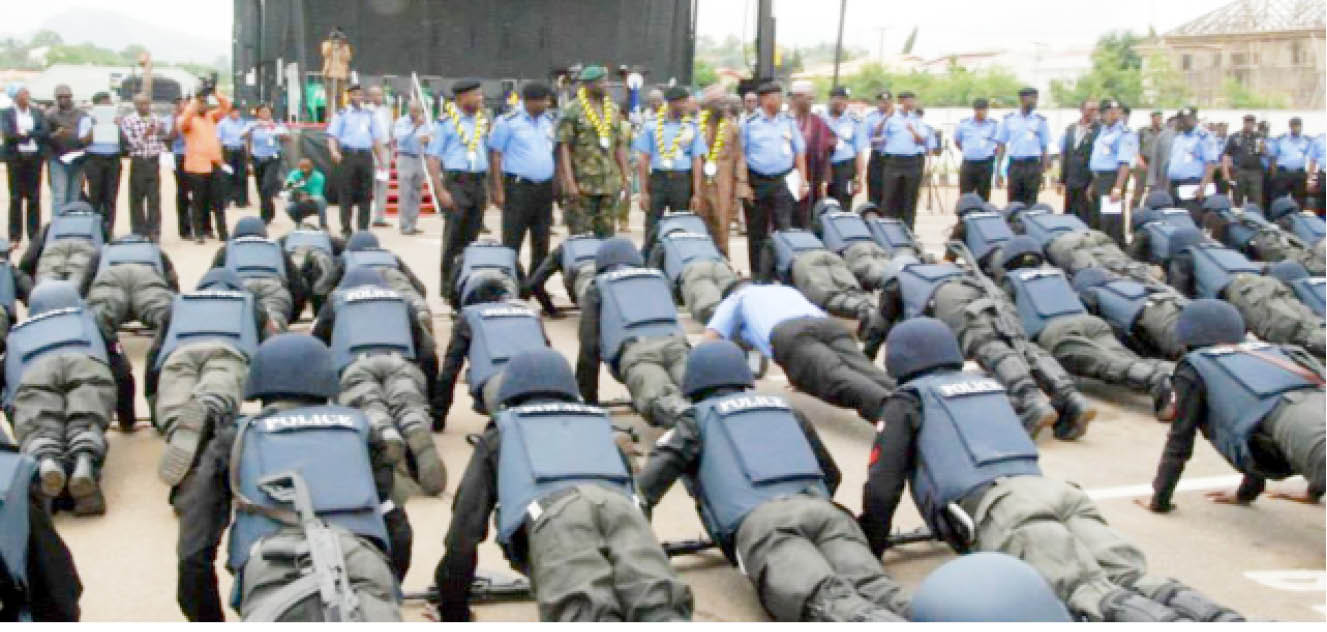Once upon a time during the Obasanjo years, a man (whose name I shall not mention) started fomenting trouble by agitating for a breakaway republic. His activities soon became an irksome irritation on the skin of the government and like a bad infection, it spread, drawing angry young people who seemed determined to adopt militancy to achieve this objective. Increasingly embarrassed by this irritation, the president informed his security adviser to “talk to that man.”
The troublesome man was duly invited to Abuja with guarantees of a safe passage. He was treated to a lavish reception and sumptuous meals. Since he had arranged to bunk with a friend or relative, the money budgeted for his accommodation at the most expensive hotel in the land was ‘Ghana-must-goed’ to him. And then he was given some more. And some more.
- Wike mocks Amaechi, says ‘I taught him a lesson in politics’
- Insecurity threatening Nigeria’s corporate existence — PRP
He talked with the people in government. They wined and dined and laughed. And this troublesome man left Abuja a happy man, his restless spirit sated, his bank account bulging.
“And that was how that problem went away,” Major General Muhammad Inuwa Idris said, smiling. His audience, gathered in the Mabushi office of the White Ink Institute for Strategy Education and Research laughed.
The general, retired, was once a commandant of the Nigerian Defence Academy, and once a registrar at Baze University, had recounted this story at an interactive session with Civil Society Organisations on the WISER-OSIWA Project on the Intersection between National Security and the Civic Space in Nigeria last week. It was a public event.
It was important that irritation was handled that way, the general said, because Nigeria’s unity is non-negotiable.
“The unity of this country is Nigeria’s core national interest,” he said.
This account disturbed me and I had to raise some questions. I was delighted the convener of the event, Brigadier Gen. Saleh Bala (also retired) was able to prevail upon his former colleague to tarry a bit so as to respond to comments that might arise from his submission.
Nigeria has always had a peculiar approach to problem-solving. The Obasanjo government’s approach to dealing with this troublesome person has become the model of problem-solving: If a problem pesters, make it disappear in a cloud of money. This, of course, is drawn from the saying that one does not talk when his mouth is full. It is a philosophy that is well adhered to in the Nigerian power circles. This is why the approach to any agitation is not to address the root causes of these agitations but to throw money at the chief agitator. When he declines, then send the “boys” after him. After all, when one is armed with a hammer, everything does look like a nail, doesn’t it?
However, in this instance, the reality is that this method took care of one troublesome man but didn’t take care of what was agitating him and the thousands who bought into his ideas and were even ready to go to war for his cause. When their leader abandoned the agitation he started, got busy dining with the power brokers, this angry multitude became an army without a general. It didn’t take long for a rabid, firebrand to emerge at the head of this mob, rebrand them and do more damage than his predecessor.
To be fair to General Idris, he addressed this concern of mine to the effect that shutting up that troublesome man meant removing the immediate threat to the unity of the country, which he emphasised is sacrosanct.
What I think he failed to address, is the fact that shutting up the immediate threat paved the way for a follow-through, for the government to move in and actually address the problems that are fuelling these agitations. That never happened.
This has unfortunately led to a replication of this militancy and banditry across the country. This has led us here.
In all sincerity, what that Obasanjo approach only achieved was a delayed detonation of a problem Nigeria is now grappling with.
If Obasanjo bungled this situation, what would one say of the late Yar’adua’s formalisation of this policy?
There is no denying that the amnesty programme for the Niger Delta militants was essential at that time, as Nigeria’s security system had proven itself incapable of containing the situation. A decade later, the programme is still running, with no plan of winding down, and now appears to have become a permanent fixture in the Nigerian system. Any strategist would tell you that it is always essential to have an exit strategy for any plan. Whereas the initial plan was to place the militants on a monthly stipend during the “rehabilitation period,” following Yar’adua’s death a year after the programme took off, it would seem that the rehabilitation period is now everlasting and the militants have been growing pudgy on the stipend handed out every month for the past eleven years.
Reports are emerging that “repentant Boko Haram members” who have given up their arms are placed on monthly stipends as well. And now, Sheikh Ahmed Gumi is expending so much energy canvassing for a similar package for the bandits who have been terrorising the entire country, abducting people, maiming them, killing them and pillaging villages with little reaction from the government.
Of course, there is no price to be placed on Nigeria’s unity. It is a fundamental aspect of the constitution as General Idris said. But unity, in itself, should not be a country’s national interest. It should be a means to an end. A country united in oppression and subjugation does not have any legitimacy to that unity, and being united in a suicide pact should not be upheld as a sterling example.
When I raised these concerns, General Idris clarified that while unity is essential and forms part of Nigeria’s motto, it is only one of several pillars upon which the country should build. Unity and faith, peace and progress. That unity is fundamental and faith in that unity is essential to achieve the peace that would bring about progress. And by virtue of this, unity should not be considered in isolation. It is clear the general is an intelligent man. After all, he was an honours student at the National Defence University, Washington. His dissection of the Nigerian motto is something that should be taught in all Nigerian schools so that future generations would understand that these words, these pledges, are not mere dogmas but are built on a collective principle, one many Nigerians are unaware of.
However, it was the brilliant Chris Ngwodo, writer, analyst and a staff in the vice president’s office, who came back with a clever retort. If Nigeria’s unity is a fundamental national interest, is sacrosanct and must be defended at all cost, why then did Nigeria give away Bakassi without so much as a whimper during Obasanjo’s regime in which the general served?
While the WISER-OSIWA initiative is a fabulous platform to discuss the minutiae of Nigeria’s national security, even if in a small circle, it raised crucial questions and principally the need for a clearer understanding and discourse of our approaches to problem-solving in this country.
If the Nigerian state keeps thinking that throwing money at every criminal gang is a solution, then we are only digging ourselves into a rut and very soon, we will have to pay a ransom for even the air we breathe in this country.
National security is unattainable without social justice. Instead of squandering billions in pacifying criminals, it would be wiser to invest even half of that in actually addressing the social inequities that push people to crime in the first place. When that happens, questions of unity, faith, peace and progress would be much easier to address.

 Join Daily Trust WhatsApp Community For Quick Access To News and Happenings Around You.
Join Daily Trust WhatsApp Community For Quick Access To News and Happenings Around You.

